| |
Ancient
Symbolism of...
Trees, Serpents, and Dragons!!!
[brought to you by Leon's Planet ©2000-present]
Sacred
t
r
e
e
s
Herein below, I shall show
the Sacred Trees of the Ancients, in a kind-of alphabetical order.
This is a spoiler to
what kind of stuff you'll find below.
 |
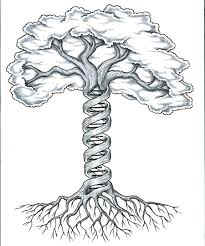 |
| Picture #1 |
Picture #2 |
Picture 1:
Celtic-style tree of life. It's a buckle. If you click on the pic,
you can buy it.
My critique of the artwork: I love it! The craftsmanship is
excellent, and the content is so intriguing. It sheds light upon what is
meant by the "tree of life".
Picture 2: "Tree of Life" by Wolfish Dreams. If you click
on the pic, you can see the original.
My critique of the artwork: I love that one as well! Really gives
you the right idea in perfect imagery and artistic skill.
A.
Archeo-Judaeo-Christian Tree of Life
According
to the Judaeo-Christian Bible (hereafter referred to as JCB), the tree of life, was a tree, placed in a garden, the fruit of which
if eaten would make one live forever. I do not think that it is literal. I
think it was an allegory. However, most Christians hold to
the idea that it was a literal tree. Someone once asked me, "Why
can't it be both?"
I believe that the whole
Garden-of-Eden story to be a symbol or metaphor of
something esoteric, which shall become
clearer and clearer as you continue to read.
There was also another
tree, called "The Tree of Knowledge of Good and Evil." Partaking
of the fruit bestowed not only knowledge, but also mortality. The picture
below is of Eve about to partake of said fruit. (Image created by A.I. and
Leon).

"Eve"
image created by A.I. and Leon
A.
Assyrian Tree of Life,
and...
B.
Babylonian Tree of Life
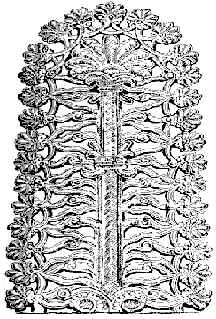
Picture is in the public domain.
One thing that I find interesting
is that the God of the Assyrians was called "Ashur". The
Babylonians/Sumerians used the same symbol for their tree of life. (See
picture above).
Assyrian & Babylonian traditions regarding the tree of life are very similar to those of the
Hebrews, which isn't surprising since Abraham (the great father of the
Ishmaelites and Israelites) came from Ur of CHALDEES (which is also known as
ancient Babylon/Sumeria). The Hebrews, therefore,
got some of their traditions from Babylon! The Hebrews made some changes,
of course.
PLEASE NOTICE: each side of the tree has 14
branches.
In ancient middle eastern numerology, the number 14 (1 + 4) is
the same as 5, which signifies immortality (eternal life). Then, the tree
culminates in a final 15th branch at the top. 15 (1+5) is the same as 6,
which signifies creation and procreation. (See my numerology
page for details about Chaldean numerology). Hence, I propose that the encrypted meaning of
the tree of life is clear: immortality is achieved through
procreation.
Another VERY interesting thing is that the branches actually look like humans,
holding hands, or arm in arm.
B.
Buddhist Tree of
Life
In a Mongolian Buddhist
temple, (Yes, I lived in Mongolia. See
my blog.) I saw a statue similar to (very similar to) the one pictured
above. I was not allowed to take photos. The title of the statue was
"Eternity". It would appear that the Buddhists do not hide their
doctrine behind symbols and metaphors. Eternal life is NOT from eating an
apple; it is from passing on one's genetic material to one's offspring.

(Shakti)
C1.
Celtic Tree of Life
(Self-explanatory, is it not?) I love how the Celts and Buddhists have the
same view on eternity.
C2.
Chinese
Tree of Life
FOREWORD: First of all, let us realize that China is now a huge country made up of 56
indigenous nationalities. There are therefore, 56 different cosmological and
creation myths in China. And yet, not much is on the net. This is
what I could find:
According
to Taoist Chinese Mythology, there was a sacred peach tree, the fruit of which, if
eaten, would bestow immortality upon the partaker. This is evident from
the classic Chinese novel, A Journey to the West, wherein a character
named Sun, Wu-kong (AKA:
Son, O-gong) seeks
out, finds, and partakes of the fruit of the tree. The tree was
guarded by a low-level god, (I forget his name); and Sun, Wu-kong had to trick the guardian of the
tree in order to gain access to the tree.
Furthermore, an archaeological excavation unearthed a bronze tree in China. The fruit of
the tree were either coins or people. I find this fascinating, because one
of my theories is that the "tree of life" is a pedigree of human life
(in essence: a family "tree").
E.
Egyptian
Tree of Life

Osiris is Green! |
 |
Osiris
Photo is in the public domain. |
Tree of Life
From Egypt: Tomb of Sennedjem
Slightly altered by me for aesthetic and modesty purposes. |
I had (in the past)
written here that it would seem that this is
"tree
of life" is equated with Osiris (can't remember where I got that
idea from), Osiris being the personification of the life force of all living
things in the material universe. (That's why he is green! He
represents life!) However, I recently came across new information.
It would appear that the Tree of Life is personified by a female.
Osiris--male-- (as the personification of Life) would be closely related to the
Tree of Life, but he is NOT the tree of life.
As aforementioned, Osiris
represents the life force of the material universe, but the Tree of Life may
represent a spiritual life, because in other depictions, the tree of life gives
"life" to the spirits of the dead, and invigorates the spirits of the
living as well.
If I'm right (and I think
that I am), then Osiris (who gives life to physical bodies) is a
"branch" of the Tree of Life, which gives life to both the living and
the dead.
F.
Finnish
Tree of Life
The sacred tree of the Finns was
the Ash tree. [See "N" ( for
Norse) in order to find more information].

A Giant Ash Tree
G.
Greek
Tree of Life
According
to Greek Mythology, there was a sacred, golden apple tree. When
I first wrote this page (2003) I was under the impression that the fruit of the
sacred golden apple tree,
if eaten, would bestow immortality upon the partaker. I now admit that I
was mistaken. Perhaps my misunderstanding came from the legend of the 12 labors of Hercules, the
11th of which was to retrieve an apple from the
tree in Hera's Garden of Hesperides. After Hercules completed his labors,
he was granted immortality by the gods, by Zeus's decree. Nowhere can I
find out what was so special about the golden apples, except that the taste
thereof was sweeter than any Earthly fruit to those who had pure souls and very
bitter to those who had tainted souls.
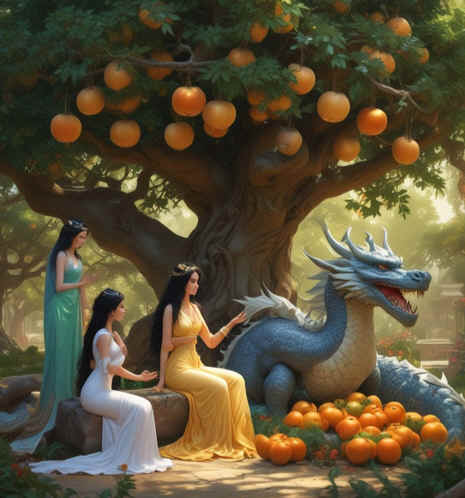
Ladon guarding the Sacred Tree of Golden Apples
With the Daughters of Hesperides
(Image created by A.I. and Leon).
Hesperides (meaning:
"Evening") [ source
]: symbolizes the evening of life (the end of life) [source: me].
Ladon (meaning: ???) is suggested to be the
Greek version of the Middle Eastern Lotan (Levithan) [ source
]. I'm not so sure that that is the case. Also, Ladon is said to be the son of Typhon (the most evil, the most
destructive of all monsters created by Gaia and Tartarus). [Learn
more about Typhon here.] In history, dragons have typically either
symbolized one of two things: (1) the cosmic sea of darkness (such
as Tiamat), or (2) actual physical water (such as Leviathan); both related
to water. Ladon does not seem to symbolize physical water, but he fits
with the overall theme of the garden of evening. Therefore, I do not agree
that Ladon is the same as Leviathan, which clearly represents physical
water. (See my exposé on serpents and dragons below this section).
The ladies who also guard and tend to the tree
also fit the theme of the garden of evening. Hesperides literally are the
daughters of the evening; also called the "Nymphs of the West" (where
the sun sets). Hesperus (probably their brother) is the "Evening
Star" (which is, of course, the planet Venus).
Depending upon the source, there were different
numbers of ladies ranging from 3 to 4 to 7. I will deal with the three
original ladies. They have questionable parentage, some calling them the
"daughters of Atlas" (as in the Shazam movie); but I'm going with the
most commonly accepted parentage, that being Nyx (female personification of
Night) and Erebus (male personification of darkness); as it fits with the
theme. According to the one source
that lists the parents as Nyx and Erebus, the three daughters are:
Aigle (brightness) [source].
She probably represents the stars.
Hespera (evening star). She, like
her brother, Hesperus, also represents Venus.
Aerica (air) [source].
Interestingly, this is the only mention of Aerica anywhere. She probably
represents the night air.
P.S.
Another daughter (nymph) mentioned in other
sources is:
Erytheis (red
one) [source].
She probably represents the red
sun.
MY THOUGHTS:
So, what could the tree and the apples represent? We are not directly
told. The similarity with the Hebrew Tree of Life is uncanny. Both
trees are guarded. Both trees had a serpent around or nearby. Both
trees had similar fruit. But the similarity ends there. The Hebrew
tree seems to bestow eternal life upon the partaker, while the Greek tree seems
to be a kind of judgment at the end of life (the evening being a metaphor for
death). To the partaker who lived a good life, the fruit is the most sweet
of all fruits. To the partaker who lived a bad life, the fruit is bitter.
Furthermore, in ancient times, especially on the
Asian continent, people believed that each star was a home to each spirit living
on Earth. The golden apples may represent the stars in the heavens, and
the tree may represent the universe.
POST NOTE (DISCLAIMER):
Something to keep in mind is that sometimes things get passed down from
generation to generation and the original meaning is lost. A tree with
golden apples, guarded by a serpentine dragon is certainly a story worth
telling, but the original symbolism may have been lost over time. That's
why we need to speculate, and use our own discernment. The thing that I
cannot understand is why the tree needs to be guarded? Maybe it's just
guarded from the living by a dragon that represents darkness (which represents
death). My thinking is that we will all be given an apple when we
die. Do you dare take a bite?
H.
Hindu Tree of
Life / Tree of Knowledge
Hindus (and possibly its
offshoots: including Buddhism) revere two trees:
1. Peepal (Pippala) or Ashwattha Tree
= as the Tree of Eternal Life.
[Interestingly, the
roots reach into heaven and the branches spread out on earth. Wow!
The Tree of Life in the Cabala is also said to be upside down, or so I've
read].
2. Bodhi Tree = Tree of
Knowledge
[Buddha (Siddhattha
Gautama) sat under a Bodhi Tree to gain his knowledge].

Me in front of a Bodhi Tree, Vietnam, 2010
Photo by Titus (my son).
M.N.
Mayan
& Navajo Trees of Life
 |
 |
| Mayan Tree of Life |
Navajo Tree(s) of Life |
We see (in the Mayan and
Navajo art) a maize (corn)
plant standing for the tree of life, which seems appropriate since maize (or
corn) was the staple food for the Mayan people. The interesting thing to
me is the humanoid figure in the center of the maize plant (tree of life).
Wow! Could he/she/it be the great progenitor of the human race? I
don't know. Another interesting thing is the personage on the left appears
to be offering something to the rooster-like being on top of the tree. I
wonder what that represents.
N.
Norse
Tree of Knowledge (my
favorite!)

Wow! This is so cool!
This stone (or
'stele') was found in Norse territory: (Sweden, Gotlands Fornsal, Visby.)
The World Tree
(Yggdrasil) |
The Merriam-Webster's
Dictionary defines Yggdrasil thusly: "a huge ash
tree in Norse mythology that overspreads the world and binds earth, hell, and
heaven together ." That might not be accurate. Yggdrasil literally means:
"Terrible Steed" and was the name of Odin's horse. How
the "World Tree" got to be associated with Odin's horse is
mystery to me, unless there is a message there. Perhaps there
is! Perhaps, the "World
Tree" (better named "Universe Tree" or "Tree of the
Cosmos") doubles as BOTH a link and a means of transportation from
one realm to another, kind of like a "worm hole".
To my knowledge (from extensive study) the Norse
World Tree was never called a 'tree of life'; However, it was called 'Mimameidr'
(Mimir's Tree). Mimir was the personification of
Knowledge; and so therefore, we can safely say that the sacred Norse World Tree is one of the few Trees of
Knowledge. |
Midgard
&
Asgard |
The flat line across the center of
the stele is Midgard.
I believe
"Midgard" to be short for "Middle Garden". That is the
realm
in which we humans currently reside.
The roots of the tree extend into
the Asgard.
I believe
"Asgard" to be short for "Aesirs' Garden". That is the realm of
gods (also called Godheim: 'Gods' Home'), Midgard and Asgard are connected by a
rainbow-bridge (called 'bifrost'), which only the
gods can traverse. Notice how Asgard is BELOW the roots of the the
tree.
|
| Viking Ship |
Things that make you go, "Hmmm..." Perhaps the Stele
was a grave marker, and the ship represented the journey to Valhalla,
where all good warriors go. Another possibility is that the
ship could represent the Vikings themselves, and the stele may have been erected to insure a successful
journey. However, if you want to know what I think it represents, please
keep reading. |
| 2 Serpents |
Those historians who know nothing of esoteric wisdom, don't have a
clue. They have suggested that to two serpents could represent
Jormungandr, the "World Serpent" (better named the
"Cosmic Serpent"). However, I must vehemently disagree!!!! Jormungandr
was/ is a single
serpent, which was so long as to encircle the whole world (universe) and was/is able to bite
his own tail. Yet, in the stele, there are two serpents of exactly the
same size (representing equality in importance). If one looks
closely, the two
serpents encase what appear to be some stylized gametes. To me the
symbolism is clear (and I think you will agree with me if you keep
reading this page until its conclusion). The serpent on the left
represents the DNA of the male gametes (spermatozoa), and the serpent on
the right represents the DNA of the female gametes (ova). |
| Sun Whorl |
At the top, we have
what is reportedly a Viking Sun Whorl, which some say represents the
Sun's Energy and is reportedly a symbol used to attract riches. If it is a
stylized sun, it is the weirdest sun I have ever seen. I mean since when
do rays bend? Parenthetically, maybe that's the whole point. He who can bend the
sun's rays, would be omnipotent. However, I'm not convinced that it is a
symbol of the sun at all. It has 8 arms. In the middle eastern numerology,
the number
8 signified new beginnings (birth and/or rebirth). Perhaps this stele was
not erected (as mentioned above) for good luck as the Vikings commenced
(began) a journey. OR, perhaps it was symbol if fertility.
Who knows? Right? |
| Egg & Sperm |
At the very top, one can see a spermatozoa heading toward an ovum.
Because of that, I am more convinced than ever that the stele was a
fertility stele, probably associated with fertility rites.
Therefore, one must conclude that the ship at the bottom was NOT
carrying the spirit of the dead, but the spirit(s) of the yet-to-be-born
from Asgard to Midgard.
My final conclusion is that the ancients knew a lot more than we give
them credit for. And this brings me to my next topic: the
symbolism of the names of the first two humans: Ask and Embla.
|
Ask &
Embla
(the first two humans
of Norse mythology)
Foreword: In Norse
mythology, the first two humans were said to have been created from two trees; the first man's
name was Ask and the first woman's name was Embla.
(I disagree that there were two trees involved; just one.)
Research about
"Ask": I looked up the word 'ash' (the tree) in the Merriam-Webster's
Dictionary, and found out that it comes from the Old High German word 'ask'
and the Norse word 'askr'.
Conclusion: ASK
= ASH TREE (the tree of knowledge (AKA: carnal knowledge))
Resarch about "Embla":
The etymology of the woman's name is more
elusive. Some have suggested that it comes from the Old Norse word for
elm: which is almr; and yet, I disagree. I don't think that the two words 'Almr' and
'Embla' are close enough to be considered cognates; Hence, I'm not happy with that all-to-easily-acceptable
explanation. So, I search for some more likely cognates of 'Embla'.
This is what I found:
-
Emblem.
The English word emblem
has a very interesting etymology. According to the Merriam-Webster's
Dictionary, its etymology is derived from: Middle English, from Latin emblema
inlaid work, tesselated work, and from Greek emblema, literally,
insertion,
from emballein to throw in, put in, insert.
-
Emball.
Also, from
the Merriam-Webster's Dictionary, we learn that the English word emball
is a pure English word, which means to encircle.
-
Emma.
The name Emma, which is still widely used today in English-speaking
countries, comes from the German language and means: all-containing. [Source]
Wow! Another source,
states that Emma is from Latin (and both sites may be true)
meaning: Entire (similar meaning!).
Final Conclusion:
If we think about it, Embla could
very well be a cognate of emblem
and/or emball and/or
Emma. While the Ash-Ask connection is well supported by
etymology, the Elm-Embla connection is not supported at all. There are
several variations to the Ask-Embla
story circulating out there. In none of the stories are were told the
kind of trees (or logs) used to create the first two humans, except where the
recounters of the stories have inserted their own opinions. In all
versions of the story, we are told that the first humans were named "Ask" and
"Embla" after they were created.
If you ask me (ha,
ha), I'd say that the word "Ask" is a metaphorical
metonymy.
The metaphorical part:
ash tree = phallus. The metonymy part:
phallus = man.
And what of Embla?
She was the all-container; her womb contained the entire human
race!
LEGAL NOTICE:
My research has led me to determine the
possible etymology of "Embla". I didn't take from anyone.
I didn't plagiarize.
You heard (read) it here first. The above report is an original idea by
Leon.
© 2006-present. Please
give credit where credit is due.
|
Q:
Qabbalah
My original thought:
Tree = Book
I used to be convinced that 'tree'
was a
metonymy
for a book, but I was wrong.
Then I thought: Tree = human
I was convinced
that "tree" was a metaphor for human. [Tree of Life = Man, Tree of
Knowledge = Woman].
Then I
thought: Tree of Life = The Eternal Soul,
Tree of Knowledge = The Human Body
But,
what does the Qabbalah have to say on the subject?
[Note: In
Hebrew, the Qabbalah is in a book known as ZOHAR]
Here is ZOHAR's Tree of
Life (w/ 10 sefirot)
 |
-
No. 1 is called,
"Crown" (top of the head)
-
No. 2 is called,
"Wisdom" (right brain)
-
No. 3 is called,
"Understanding" (left brain)
-
No. 4 is called,
"Mercy" (right shoulder/arm)
-
No. 5 is called,
"Justice" (left shoulder/arm)
-
No. 6 is called,
"Beauty" (heart)
-
No. 7 is called,
"Eternity" (right hand)
-
No. 8 is called,
"Glory" (left hand)
-
No. 9 is called,
"Foundation" (groin)
-
No. 10 is called, "Kingdom
of Heaven" (feet)
|
Well,
if we accept the Qabbalah as the ultimate source of esoteric wisdom (and I'm not
suggesting that you do), then we can conclude that either my second or third
ideas are correct, or both!
This
is NOT the end. There's
MORE! Please keep reading.
II.
The 3 Trees of Knowledge
Trees of
"Knowledge" only exist in three religious branches:
1. The 3 Abrahamic
Religions (Islam, Judaism, Christianity), which have basically the same
cosmological story (said to be from Moses, but could be much older; probably
from Mesopotamian origins (Sumerian Cuneiform Texts).
2. Hinduism/Buddhism: the
Bodhi tree. [Siddartha Gautama (Buddha) got the idea
of sitting under a Bodhi Tree (which means Knowledge Tree), in order to gain
knowledge. And, as the story is recounted, Mr Gautama did gain enlightenment under
a Bodhi Tree.]
3. Norse Mythology:
It has been referred to in various ways: The World Tree, or Tree of Mimameidr (Tree of Knowledge),
and lastly known as: Yggdrasil (Terrible Steed; Odin's six-legged horse,
and the fastest being in the universe).
III.
The NORSE "World Tree"
PICTURE: by Leon of
Leon's Planet...
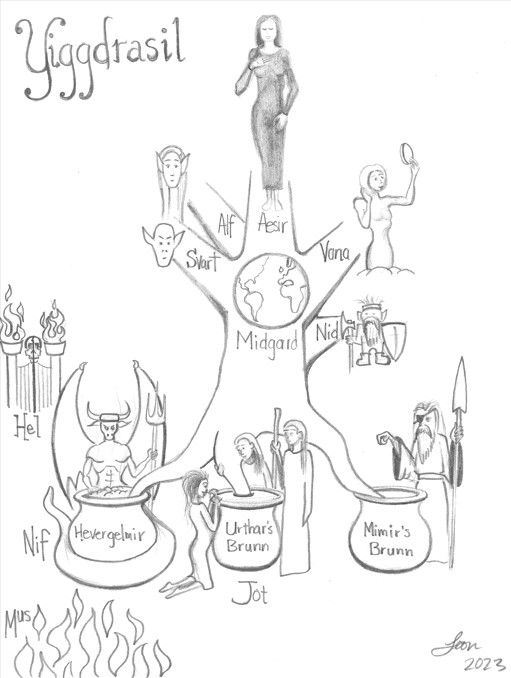
The "World Tree" is a
metaphor for two things: the macrocosm and the microcosm.
| Macrocosm |
Microcosm |
Asgard = Wodin (Light
& Wisdom)
Frigga (Love)
Thor (The day-to-day Sun)
Baldir (The Sun in Winter)
Viddar (The Sun in End-times)
Sif (The Moon)
Midgard = The physical realm
Alfheim = The light spiritual realm
Svartheim = The dark spiritual realm
Nidavellir = The realm of the microbes.
Niflheim = The Ice Home, its king being
Nidhogg (dreaded biter), a dragon which rules the realm.
Jotunheim = The Ice-Giant Home. (I think this
represents matter in space; such as other planets).
Loki = The personification of Entropy (his name was thought to
mean 'wildfire' but is etymologically more closely related to
'deceiver'). He personifies all the chaos and destruction that
happens in the universe. His children are:
(1) Hel
= personification of the afterlife, as she is the gatekeeper to the
Underworld.
(2) Fenrir
= a wolf that causes much destruction (which I believe represents the
red sun).
(3)
Jormungandr = a serpent big enough to encircle the entire Earth in
darkness (which I believe represents night time and solar eclipses).
Muspelheim = Fire Home. (Probably the center of the galaxy; and
all centers of all galaxies for that matter). |
Asgard = Wodin (Light
& Wisdom in the human body)
Frigga (Love in the human body)
Thor (Life during the day)
Baldir (Life during the winter)
Viddar (Life at the end; retirement)
Sif (Nightlife)
Midgard = The physical realm (one's physical body)
Alfheim = The light spiritual realm
(superego)
Svartheim = The dark spiritual realm (id)
Nidavellir = The realm of the microbes (cause of
illnesses)
Niflheim = One's demons.
Jotunheim = The physical world around us.
Loki = The personification all the chaos in one's life.
His children are:
(1) Hel
= death.
(2) Fenrir
= natural disasters.
(3)
Jormungandr = darkness.
Muspelheim = the burning of dead bodies on the pyre.
Nidhogg = the bacteria and worms that eat the body when it doesn't
get a proper burning.
|
The World Tree has three roots (origins), each dipping into a different water
source. The first and deepest root dips into the Hvergilmir
(Bubbling Spring) where all life originated. It is in Niflheim (Ice Home). The second root dips
into Uthar's Brunn (Fate's Cauldron/Well). The thrid root dips into the
Mimir's Brunn
(Knowledge's Cauldron/Well). No one knows where that is located,
except Mimir and Wodin. [NOTE: my recent studies have shown that
Mimir was a Vanir, so it must have been in Vanaheim.]
At the base of the World
Tree (i.e., the human body in the microcosm) there is a critter called Nidhogg (the dreaded
biter). Nidhogg is also referred to as a corpse eater. I therefore
believe Nidhogg to be a metonymy for all viruses and bacteria which try to
destroy the World Tree (the human body). It is written that when Mimir
(Knowledge) ceases to tend the World Tree (by watering it), the World will come
to an end, and Nidhogg will destroy the World Tree by devouring it.
There is an eagle in the
top branches of the World Tree, with a hawk standing on its head. It is
suggested by The
Viking Answer Lady that eagles were associated with dominance [my
word]. They were birds of war and symbolized sovereignty [her word]. Clearly,
the eagle, therefore, represents the human brain, which is the sovereign of the
human body (world tree). The hawk's meaning is not clear. Odin was said to have
two ravens, one named Memory and the other named Thought. I, therefore,
suggest that the hawk (which is black, by the way in the picture) may very well have the same symbolism as Odin's ravens; i.e., that The
World Tree (humans) maintain self-sovereignty by mastering memory and thought.
There is a squirrel named
Ratatosk which shimmies up and down the tree relaying insults between the eagle
and Nidhogg. This is very interesting. I suggest that Ratatosk
represents either (1) the nervous impulses which relay messages to and fro the
brain; or (2) the body's immune system [but most like the former].
There are other animals on
the World Tree as well, such as the four stags that eat from the leaves and bark
of the World Tree. These could represent benign (and possibly malignant) parasites, both exterior
and interior (and let me tell you that there are many).
Another very interesting
thing is called: Ragnarok (the end of the world). There is a prophesy that
the world will end by fire, created by the fire giants (sons of Muspell).
I say interesting because it was common in Ancient Norse (and Celtic)
territories to cremate the bodies of the deceased and bury the charred bones and
ashes. See: RAGNAROK
| Many groups, especially in Sweden and
further east, adhered to the old custom of cremating
the body on a funeral pyre and then burying the fragments of bone, ash
and charcoal, often in a simple clay vessel beneath a low mound.
|
| Beowulf was cremated
and then buried in the tradition of the Scandinavians at that time.
[Source: Beowulf Poem] |
Late Iron Age (2300-1900 years ago)
In this period, inhumations with
grave goods are again found. Men usually have swords, shields and
sometimes spears, women have mirrors, and sometimes bronze bowls or
beads.
There are three main types of burial
in the south-east of England:
- The Aylesford-Swarling
culture in Kent, Essex and Hertfordshire, dated 50 BC-43 AD,
consists of urned cremation cemeteries.
These include some elite burials with cremated bone in bronze-bound
wooden buckets accompanied by vessels associated with wine-drinking
and sometimes with amphorae and items of hearth furniture.
- Welwyn-type burials are
similar, comprising burial of cremated bone
in a pit with goods associated with feasting, personal equipment and
other items such as gaming sets.
- Kingly burials, e.g. the
Lexden tumulus in Colchester (c.15-10BC), contained imported luxury
goods such as bronze furniture fittings, and iron chain mail with
bronze and silver decoration. Most items were
partially burnt.
|
IV.
Table of
Good Serpents / Dragons
|
Gender

Culture

|
Male-Serpent
OR DRAGON
|
Female-Serpent
OR DRAGON
|
| Chinese
|
red dragon
(male sky
dragon) |
blue dragon
(female
water dragon) |
| Aztec
|
Quetzalcoatl
(Feathered
serpent, twin of Xolotl and husband of Cihuacoatl) |
Cihuacoatl
(Female
consort of Quetzalcoatl. "Snake Woman" is her
name. She helped Quetzalcoatl create the human race.) |
| Mayan
|
Xpiyacoc
(serpent-god; twin of
Xmucane) |
Xmucane
(serpent-god; twin of
Xpiyacoc, definitely female) |
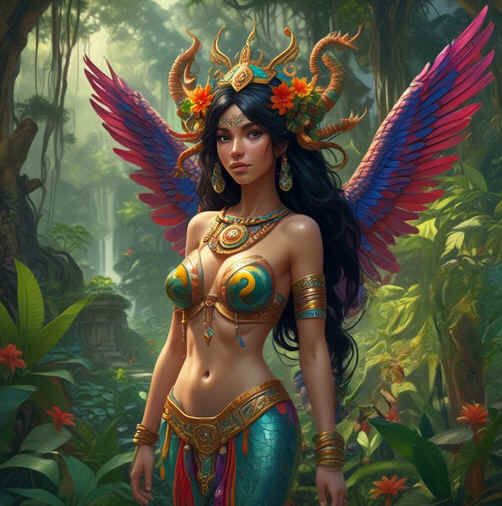
"Xmucane" (image created by A.I. and
Leon). |
| Hindu/Buddhist |
Vasuki
(King of the Nagas)
(Nagas are/were water serpents) |
Manasa Devi
(Sister-Wife of Vasuki)
(a naga goddess) |

"Manasa Devi" (image created by A.I. and
Leon). |
| Egyptian |
Amon
(Male
Serpent-god) |
Amaunet
(Female Serpent Goddess;
paired with Amon) |
NOTE: The
serpents above were associated with creation (and procreation). See
article below for more information.
FOR LIST OF BAD DRAGONs Click Here.
VI.
Article: "The Cosmic Serpent"
HERE's
an excerpt from
"The Cosmic Serpent: DNA and the Origins of
Knowledge"
by Jeremy Narby
My research revealed that in the early 1960s, anthropologist Michael Harner had gone to
the Peruvian Amazon to study the culture of the Conibo Indians. After a year or so he had made little headway in understanding their religious system when the Conibo told him that if he really wanted to learn, he had to drink ayahuasca. Harner accepted, not without fear, because the people had warned him that the experience was terrifying. The following evening, under the strict supervision of his indigenous friends, he drank the equivalent of a third of a bottle. After several minutes he found himself falling into a world of true hallucinations.
He saw that his visions emanated from "giant reptilian creatures" resting at the lowest depths of his brain. These creatures began projecting scenes in front of his eyes. "First they showed me the planet Earth as it was eons ago, before there was any life on it. I saw an ocean, barren land, and a bright blue sky. Then black specks dropped from the sky by the hundreds and landed in front of me on the barren landscape. I could see the ‘specks’ were actually large, shiny, black creatures with stubby pterodactyl-like wings and huge whale-like bodies.... They explained to me in a kind of thought language that they were fleeing from something out in space. They had come to the planet Earth to escape their enemy. The creatures then showed me how they had created life on the planet in order to hide within the multitudinous forms and thus disguise their presence. Before me, the magnificence of plant and animal creation and speciation–hundreds of millions of years of activity–took place on a scale and with a vividness impossible to describe. I learned that the dragon-like creatures were thus inside all forms of life, including man."
At this point in his account, Harner writes in a footnote at the bottom of the page: "In retrospect one could say they were almost like DNA, although at that time, 1961, I knew nothing of
DNA."
I had not paid attention to this footnote previously. There was indeed DNA inside the human brain, as well as in the outside world of plants, given that the molecule of life containing genetic information is the same for all species. DNA could thus be considered a source of information that is both external and internal–in other words, precisely what I had been trying to imagine.
I plunged back into Harner’s book, but found no further mention of DNA. However, a few pages on, Harner notes that "dragon" and "serpent" are synonymous.
This made me think that the double helix of DNA resembled, in its form, two entwined serpents.
To find out, I picked up a book about a third ayahuasca-using people, entitled (in French) _Vision, Knowledge, Power: Shamanism Among the Yagua in the North-East of Peru_. In this study by Jean-Pierre Chaumeil (to my mind, one of the most rigorous on the subject), I found a "celestial serpent" in a drawing of the universe by a Yagua shaman. Then, a few pages away, another shaman is quoted as saying: "At the very beginning, before the birth of the earth, this earth here, our most distant ancestors lived on another earth...." Chaumeil adds that the Yagua consider that all living beings were created by twins, who are "the two central characters in Yagua cosmogonic thought."
These correspondences seemed very strange, and I did not know what to make of them. Or rather, I could see an easy way of interpreting them, but it contradicted my understanding of reality: A Western anthropologist like Harner drinks a strong dose of ayahuasca with one people and gains access, in the middle of the twentieth century, to a world that informs the "mythological" concepts of other peoples and allows them to communicate with life-creating spirits of cosmic origin possibly linked to DNA. This seemed highly improbable to me, if not impossible. Still, I had decided to follow my approach through to its logical conclusion. So I casually penciled in the margin of Chaumeil’s text: "twins = DNA?"
[skip... skip... skip...]
On the basis of this connection, I could now conceive of a neurological mechanism for my hypothesis. The molecules of nicotine or dimethyltryptamine, contained in ayahuasca, activate their respective receptors, which set off a cascade of electrochemical reactions inside the neurons, leading to the stimulation of DNA and, more particularly, to its emission of visible waves, which shamans perceive as "hallucinations."
There, I thought, is the source of knowledge: DNA, living in water and emitting photons,
like an aquatic dragon spitting fire.
|
VII.
Tarot and Serpent Symbolism:
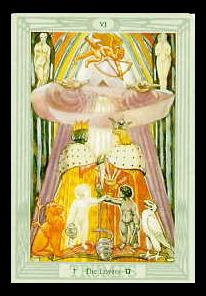
Tarot Card 6 (lovers)
notice the twins and serpent |
 |
+ |
 |
= |
 |
HERO vs DRAGON
| FOREWORD:
Since I first started this page in the year 2000, I have learned so
much. Finally, I have come to understand what these gods/creatures
actually represent (symbolically). |
Table
| Culture |
The
Sun |
Water |
| Hebrew |
BeHemoth |
LeviaThan
[female dragon] |
| Canaanite |
Bel-Hemmon
(Bel-Hadad)
|
LoTan
(wrapping)
[female dragon] |
| Hittite |
Baal
/ Bel
|
Rahab
(female dragon) |
RE:
The above 3 pairs =
Sun
vs
Water
AKA: The Water Cycle
I have come to understand that
BeHemoth, Bel-Hemmon, and Bel are all the same entity, which is the
sun. They were called the Lord of the Weather, because the
ancients somehow knew that the Sun was the powerhouse of all the
weather. And, verily, the Sun is the Lord of the weather!
LeviaThan, LoTan, and Rahab are the
same entity, namely water. In ancient cultures, dragons were often
associated with water. They were considered to be both good AND
bad. Too much water can flood and cause so much damage, but not
enough water can cause drought.
The Sun can evaporate Leviathan, but
then Leviathan "regroups" and condenses into great clouds,
blocking out the sun. Then, of course Leviathan precipitates and
regroups again, in a different form. This constant battle between
BEHEMOTH and LEVIATHAN is the story of the water
cycle that every child learns in
elementary school!
|
RE:
The 4 Pairs Below =
Sun
vs
Darkness I
have come to understand that dragons either symbolized water or darkness
(the cosmic sea of space). The four pairs below are Solar Deities
versus Dragons of darkness.
|
| Greek |
Apollo
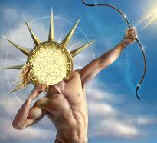
The Sun.
|
Python
(dragon)

I'm not sure yet if Python represented darkness
or water. I am leaning towards darkness.
|
Mongolian
& Tibetan |
Khormasta
The Sun |
Araatan
Chutgur
(AKA: "Arakho" the dragon)
This one definitely represented darkness. |
| Norse |
Thor
(Sun)

Thor was carried
in a chariot across the sky each day, drawn by two he-goats.
|
Jormungandr
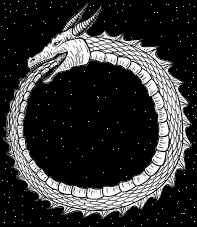
(World serpent
that represents the cosmic sea of darkness; So big that it could
encircle the Earth and still swallow its own tail.)
|
Sumerian
Babylonian
Assyrian
Mesopotamian |

Marduk
Solar Deity
|
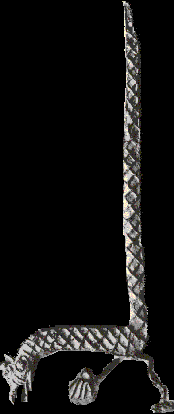
Tiamat
(female dragon that represents the
cosmic sea of darkness)
|
| RE:
The above 4 pairs
The above 4 pairs are the Sun (the
hero) versus
the Dragon (of darkness).
The stories all say the same
thing, that the Sun defeated the dragon (of darkness); but the dragons
can win small battles here and there (they are called eclipses
nowadays). RE:
The 1 pair below =
Sun vs
Something really evil
And, it's not water and
it's not darkness |
Zoro-
astrianism |
Garshasp
The Sun
|
Azi-
Dahaka
(A very,
very evil dragon) |
| The Last Dragon
(Azi-Dahaka)...

is something really BAD!
(Hint: not water; and not
darkness)
Click
here to find out what it represents. |
VIII.
Leon's Essays on the Topic of Serpents
"Single Serpent
vs.
Double Serpent"
 |
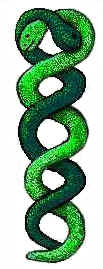 |
| Single Serpent |
Double Serpent |
| Virus |
Human DNA |
Humans are composed of two 'serpent-like' things, which we now
refer to as 'DNA strands' in a "double helix". Each strand makes (composes) 23 chromosomes (see number 23
in numerology). The 23rd chromosome is the
"sex" or "gender" chromosome (this is highly significant, and
you'll see why if you see my numerology page).
One serpent (strand) comes from a male
human (via spermatozoa), and one serpent
(strand) comes from a female human (via ova). Humans are therefore in essence
double-serpent beings.
Yet, there is a life-form, consisting of only one serpent.
It is called a virus. Viruses are single DNA strands, that reproduce
by infecting double serpent bodies and "stealing" their DNA, in order
to replicate, causing havoc for the double-serpent beings, sometimes even killing
the double serpent beings. [Parenthetically, I believe that MS is caused
by a virus (single serpent) that has altered the DNA of lymphocytes, in essence
reprogramming them to attack the myelin. For more info, see my health
page.]
Now, being "armed" with this new perspective or
insight, it is expedient to read from Genesis:
And the LORD God said
unto the woman, What is this that thou hast done? And the woman said,
The serpent beguiled me, and I did eat.
And the LORD God said unto the serpent, Because thou hast done
this, thou art cursed above all cattle, and above every beast of the
field; upon thy belly shalt thou go, and dust shalt thou eat all
the days of thy life:
And I will put enmity between thee and the woman, and between thy
seed and her seed; it shall bruise thy head, and thou shalt bruise
his heel. |
Serpents (snakes) are not all cursed, in fact some are liked very much.
But, all viruses are cursed. And since the ancient Hebrews did not have a
word for "virus", why not use "serpent" as a metaphor?
It is written, "dust shalt thou eat".
"Adam" means "dust" in the Hebrew language. And since
the humans were created of the dust of the earth, it means that the viruses
would eat us: HUMANS, i.e., the double-serpent beings!
It is written: "...between thy seed and her
seed". Do viruses have "seed"? Yes! Like I
mentioned above, viruses replicate (have seed) by stealing our DNA!
It is written: [God
speaking to the serpent] "...it [the seed of the woman] shall bruise thy head".
Do viruses have heads? No. So, this is clearly another
metaphor. The head is considered the most vital part of the body.
Without it, we die. When we lose a limb, we most likely won't die
(provided medical attention is given), but if we lose our head, no amount of
medical attention will bring us back to life. Thus, it means that the
double-serpent beings would be able to KILL the single-serpent beings.
It is written: [God
speaking to the serpent] "...thou shalt bruise his [the seed of the
woman's] heel." Unlike the head, the heel is not a vital part of the
body. Thus it means that the single-serpent beings would only be able to
do minimal damage to humans.
It should be known that most viruses do not kill. HIV
doesn't kill, either. But, what it does is it attacks the immune system so
that the double-serpent beings [humans] cannot fight other bacteria and viruses that
attack the body. It would seem that the single-serpent beings have found
our "Achilles' heel"!!!
"The HINDU
Serpent-DNA Connection"
Hindu religion is the oldest religion still remaining on this
planet, and it has an interesting perspective on Serpent Symbolism.
| In Hindu mythology (and Jainism and Buddhism) the
naga is a serpent figure. As water gods, nagas inhabit the bottoms of rivers, lakes, and seas, in splendid, jewel-studded palaces ever alive with dancing and song. In temple architecture,
nagas stand guard at the portals of shrines. In South India nagakals, stones decorated with a single serpent or an
entwined serpent-pair, are set up as votive offerings by women desiring
offspring.
|
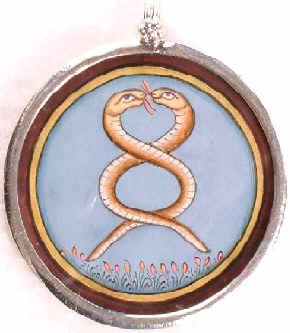
|
"The
GREEK Serpent-DNA Connection"
There is an interesting
story in Greek mythology.
Evidently, Delphi (which means womb or navel) was the "center" of the
world. There was a
huge dragon/serpent called "Python", which was the protectorate of
"mother
earth" (Gaia). Python almost killed
Apollo's
mother (by making her sick with disease), and as a result Apollo
(The Sun) killed the Python with his fiery
arrows (rays of sunlight)
It is also fascinating to note that
Aesculapius (the father of
medicine), was the son of Apollo. And Hygieia (the goddess of health) and
Panaceia (goddess of healing) were the daughters of Aesculapius.
What we have here
are 3 generations of healers!
I suggest that the Python was a
virus, which almost killed
Apollo's mother. He eradicated the virus through an adept use of medical
science. Then, he passed his skills on to his son.
It is also interesting to note that
Aesculapius was reported to
carry a staff with a carving of a serpent coiled around it, like this:
|

|
Could it be that the hidden meaning of the
Staff of
Aesculapius
is triumph and/or dominion over the single serpent beings?
I think
so.
This should be true symbol of
modern medicine (not the double serpents entwined around a staff). |
|

|
The American Medical Association
uses the correct symbol, which looks very similar to the one on the
left. |
|

|
Many medical/health care
institutions use the symbol to the left (Caduceus) which is the
staff of Hermes, the Greek god who was the messenger to humans (for the
other gods).
Hermes was associated with
athletics, so it would seem appropriate to use the symbol in sports
medicine, but there was really no association of the symbol to medicine
in ancient times. |
Now, compare these pictures of viruses to the Ancient
Serpents:
 |
This is the
"Y" potato virus. It could the two-headed serpent of many ancient
religions/cultures. |


|
This the "T4" virus. Notice is has seven extremities.
It could the seven-headed Hydra of Greek mythology, which was
eventually killed by Hercules and his nephew.
Interestingly, there is a seven-headed
serpent (naga) of Buddhist lore. It was forbidden to enter
Buddhist temples, and statues thereof adorn the exterior of Buddhist temples, as
protectors thereof. Could it be that the statues served as a warning...
that warning being that whoever enters here will be infected by a deadly
virus? And only special personages were allowed to enter such
temples. Could it be that those special personages had the antibodies to
fight off said virus? Things that make you go: "Hmmmm."
huh?
Also, interestingly, the seven or nine-headed Hydra was the
protector of Hera's Golden Apple Tree. Could it be that the fruit of the
tree was infected with a deadly virus?
|
Now, for my
serpent/dragon dream...
|
MY DREAM:
Winding Staircase, White Dragon
I don't exactly remember how the dream starts out. I think
I was lost. Then, a dragon flew toward me. From where the dragon
came, I was unaware. The dragon was the shape of an Oriental dragon, but
white, all white. It had no wings, and yet it could fly. The dragon
spoke to me, but whether it was vocal or telepathic, I really cannot
remember. I'm thinking it was more gesture-like in nature. Meaning the dragon
motioned for me to follow, which I did. It led me up a winding
staircase. It seemed very steep, and very long. The closer we came
to the top, the narrower the staircase became. When we came the the top,
the dragon, being long and slender, easily squeezed through the small aperture. I stopped. I remember thinking, "This is too small
and too difficult." The dragon encouraged me to keep going.
Upon exiting the staircase, I stood in the heavens, with all the stars. [End]
P.S.
I do dream interpretation
|
I call that dream (of mine) "My Jacob's Dream",
because of the similarities between my dream and Jacob's dream. Also, our
circumstances were very, very similar when we had our dreams. In fact,
after I had mine, I looked up Jacob's dream (never having read it before in my
life), and was astonished at how similar the circumstance were that both led up
to our dreams and which appeared in our dreams.
Wow! You made
it this far? Amazing!
[back to top]
| |

English |
|

Spanish
|

Korean |

Mongolian |

Chinese |
|
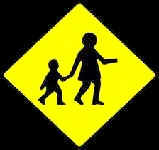
Parents of
Homeschool
|
|

Halloween
|
|

Thanksgiving
|
|
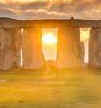
Winter Solstice
|
|

Christmas
|
|

New Years
|
|
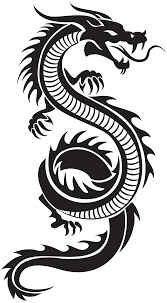
Chinese Lunar
New Year
|
|
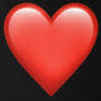
Valentine's
|
|

|
|
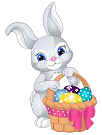
Easter
|
|

All About
Dr. Seuss
|
|
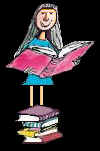
Roald Dahl
|
|

Prepper's
Pen |
|

Ways to
Help
Leon's Planet
|
|